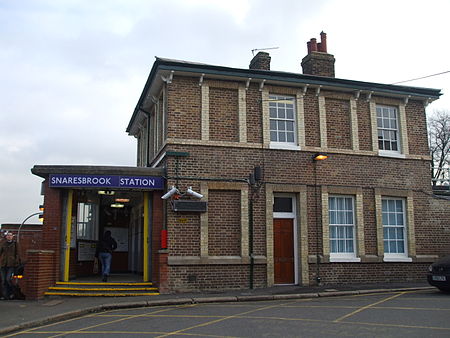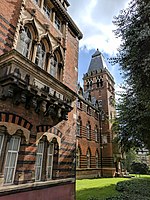Snaresbrook tube station
Central line (London Underground) stationsFormer Great Eastern Railway stationsLondon Underground Night Tube stationsLondon stations without latest usage statistics 1415London stations without latest usage statistics 1516 ... and 11 more
London stations without latest usage statistics 1617London stations without latest usage statistics 1718London stations without latest usage statistics 1819London stations without latest usage statistics 1920London stations without latest usage statistics 2021London stations without latest usage statistics 2122Proposed Chelsea-Hackney Line stationsRail transport stations in London fare zone 4Railway stations in Great Britain opened in 1856Tube stations in the London Borough of RedbridgeUse British English from August 2012

Snaresbrook is a London Underground station on the Central line, located in the area of Snaresbrook in East London. The station is in Zone 3/4, between Leytonstone and South Woodford stations.
Excerpt from the Wikipedia article Snaresbrook tube station (License: CC BY-SA 3.0, Authors, Images).Snaresbrook tube station
The Rise, London Snaresbrook (London Borough of Redbridge)
Geographical coordinates (GPS) Address Nearby Places Show on map
Geographical coordinates (GPS)
| Latitude | Longitude |
|---|---|
| N 51.58083 ° | E 0.02166 ° |
Address
Westbound Platform 1
The Rise
E11 1QA London, Snaresbrook (London Borough of Redbridge)
England, United Kingdom
Open on Google Maps










